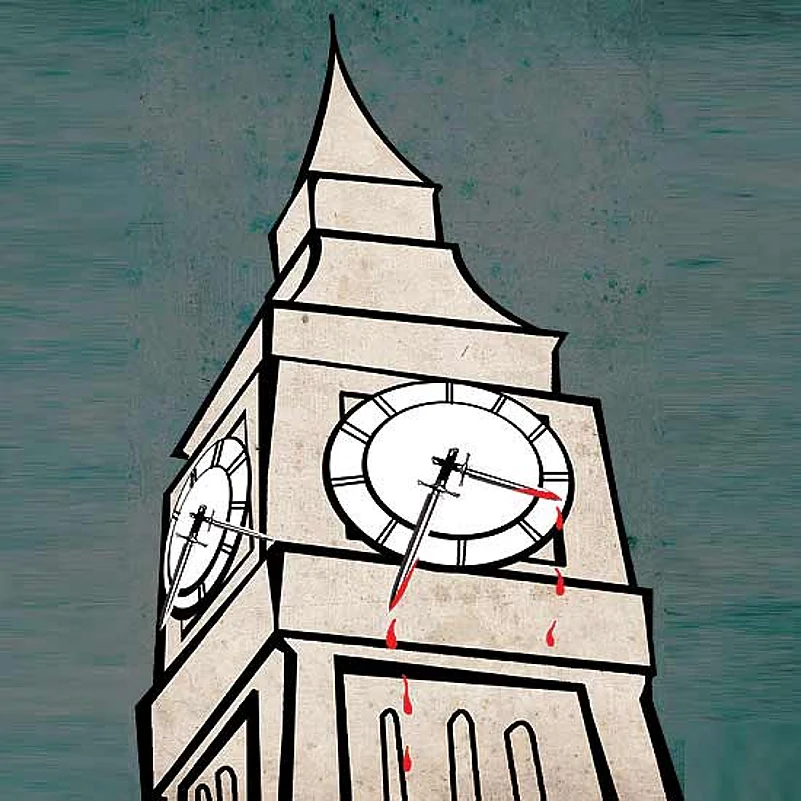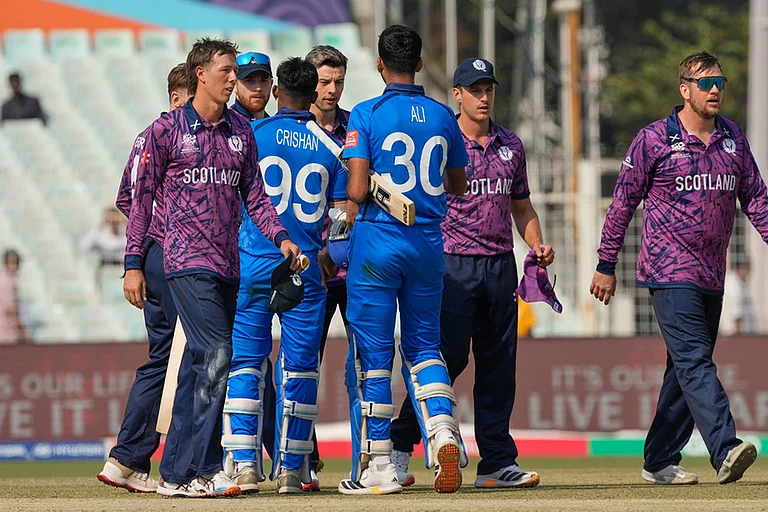The riots in Britain, the worst for over a century, have come as a rude shock to the British. Until this week, the British had a cosy, self-satisfied feeling that things in their ‘right little, tight little island’ were in many ways much better than in other parts of the developed world. The economic downturn may have seen America’s AAA credit status downgraded and several European countries in turmoil—this may yet befall Italy and France—but not Britain. The government has imposed painful cuts, but British political leaders have been confident that, in the face of the worst downturn since the 1930s, the country has avoided real trauma. Now that illusion lies shattered like so many shards of glass littering Britain’s streets.
This week’s events reveal Britain as more like a Third World country, one with a permanent underclass which owes no allegiance to the state and mocks its authority. Images of people openly boasting of their hatred of the police is something Britons associate with citizens of distant foreign lands, not their own country. Such scenes are all the more bewildering because it was only in April that the country had a public holiday to celebrate the wedding of the monarch’s grandson with festive street parties held in many communities. It’s a shattering experience to change in three months from baking cakes to celebrate William and Kate’s wedding to having young people producing and using missiles as they vandalise shopping districts and loot all kinds of goods, from running shoes and clothes to music systems and plasma TVs.
The riots reveal how Britain has changed. Today’s riots are very different from those of 30 years ago, when another Conservative prime minister, Margaret Thatcher, was imposing cutbacks. Then, the rioting largely involved battles between the police and blacks in inner-city areas like Toxteth in Liverpool or Brixton in London. What we now see is an alliance between working-class blacks and working-class whites. However, many of them live cheek-by-jowl with more affluent Britons. Britain has never had classical ghettos where the deprived are kept penned in—and, in recent years, once-deprived areas have attracted the affluent middle class. The spark for these riots was the killing of a gangster figure by the police in the deprived north London borough of Tottenham. However, it is the way the trouble spread to places like Hackney that has come as a major shock. Hackney, once a poor borough, has become quite middle class. Yet here, in broad daylight, rioters set up road blocks to fight the police and delighted in looting shops and setting fire to buildings and cars. In other countries, the police might have reacted with force of their own but here, for the first 48 hours, they almost stood by, treating the disturbance more like a sporting match. Indeed, the acting head of the London police even asked “spectators” to clear the streets, in the sort of announcement that might be made on a cricket ground.
The initial failure of the police led to an extraordinary situation where many communities, particularly non-white Asian ones, took the law into their own hands to defend themselves. This was true of the Bangladeshis in London’s Brick Lane, Turks in Hackney and Muslims in Birmingham. If there is one good thing to emerge, it is that these communities, often portrayed in a bad light, have suddenly acquired a halo.
The riots will lead to policing methods being re-examined. The much bigger problem is how parents re-impose some control over their children. Some of the looters were as young as nine and it is clear that 30 years of liberal social policies have meant that there is little respect for authority among the young. Schools are no longer allowed to discipline children by using any kind of physical force, and parents who slap or use the rod to discipline an errant child face prosecution from their own children. The idea of treating a child like an adult before time now stands discredited. The problem is Britons cannot work out what can be done to reimpose discipline without going back to harsh Victorian times.
And this is the great British dilemma. How it can be a modern, tolerant society, as it proudly claims to be, yet not allow this tolerance to be exploited to produce mayhem. There is no easy answer.
(The writer, a senior journalist and broadcaster, was a sports editor with the BBC.)






















